The Four Seasons are from Belleville New Jersey, which is a small town just 15 minutes north of Newark. These guys grew up listening to and being influenced by doo-wop groups.
If you’ve seen Jersey Boys then you know their story. But what has fascinated me since I was 11 or 12 years old was their sound. Frankie Valli is actually a baritone, but with his falsetto voice his range covered four octaves.
And if you've studied music history you may understand falsetto is nothing new. It has been used for centuries in baroque, classical and romantic music; these being historical periods of music. Counter tenor is a type of classical male singing voice whose vocal range is equivalent to that of the female contralto or mezzo-soprano voice types. Voice teachers often speak of your “head voice” when they mean falsetto.
The Four Season’s got their start as The Four Lovers by playing local clubs around their home town. At the time the group was lead by Tommy DeVito, who played guitar and sang tenor. Hank Majewski played rhythm guitar and Frank Cattone played accordion. Billy Thompson handled the drums and Nick DeVito played bass. Frankie Valli sang lead. He did this under different aliases, including Frankie Tyler, Frankie Valley, Frankie Valle and several other names.
This group continued playing local clubs from 1956 to 1958. When Nick DeVito was unavailable, Nick Massi was employed as the bass player. When Massi was unavailable Charles Calello played bass.
By 1959 the group hooked up with an up and coming songwriter named Bob Guadio. Anazingly at age 15 Guadio had scored a hit record with a song called “Who Wears Short-Shorts.” There is no doubt in my mind that without Guadio’s incredible gift of songwriting, there would probably have been no Four Seasons.
The Four Lovers first commercial release was My Mother’s Eyes. However they did not have a popular song until 1956 when their song called You’re the Apple of My Eye the made #62 on the Billboard Top 100.
The following year Frankie Valli and Bob Guadio made a pact that they would have a partnership, which they did this through a handshake. Guadio would write the songs and Valli being the voice.
It was this same year the band was fired from a gig at The Four Season’s bowling alley, but left with a new name. The Four Seasons were made up of Tommy DeVito, who was the guitar player and tenor voice for all of the group’s history up until around 1970 when the core group split up. Nick Massi played bass and sang the bass parts. When he quit the group, Joe Long took over the bass duties. Bob Guadio was the organ player and sang baritone and tenor. Former Four Lover bass player, Charles Calello who is a very accomplished musician, was hired as the group’s vocal arranger.
The Seasons first single was called Bermuda. The flip side was a song called Spanish Lace. It did not chart.
But Guadio persistently wrote songs and eventually came up with Sherry. Bob Crewe immediately liked it and recorded the song under his own Topix label. Then members of the group went about soliciting labels to release the record. Valli got in touch with the West Coast sales manager for Vee-Jay Records who pushed Sherry.
Up until this time Vee-Jay only sold records made by Black artists. By signing The Four Seasons, this became Vee-Jays first White act. Sherry was release nationally in 1962 and went to #1 on the Billboard Top 100. Audiences did not know who the Four Seasons were and had not a clue if they were a Black or White group, but they sure like the song.
Crewe and Guadio were on a roll and followed up with Big Girls Don’t Cry, which became their second #1 hit and then Walk Like A Man, which scored their third #1. Each recording sold over a million units. They followed these up with Candy Girl and Ain’t That a Shame.
During the years 1962 through 1964 only the Beach Boys matched the Four Seasons in sales in the United States. In 1962 The Four Seasons were invited to perform Big Girls Don’t Cry on American Bandstand.
Unfortunately Vee Jay could not fulfill all the orders for records due to the company’s financial situation. During this same time period, Vee Jay had inked a contract with EMI to become the American distributor of Beatles songs. They only produced one Beatles recording.
The Seasons were in a dilemma and filed a lawsuit against the label. In 1965 per terms of the settlement, the Four Seasons were obliged to do one more album which they did as a live LP, although it is doubtful that it was actually a live performance.
Vee-Jay eventually filed bankruptcy and the Four Seasons were able to reclaim their catalog. By this time they had signed with the Philips label.
Beatlemania and the British Invasion did not seem to diminish the popularity of the Four Seasons, Although the song Dawn (Go Away) was kept out of the #1 spot on the Hot 100 by several Beatles singles.
By 1965, Nick Massi decided he had enough of traveling and performing and left the group. He was briefly replaced by Charles Calello, the group’s arranger, who stepped in for a while to play bass and sing the bass parts.
Shortly after this left-handed bass player Joe Long was permanently hired and stayed on through 1975.
From 1965 through 1967 the Four Seasons scored quite a few more hits, including Rag Doll, Ronnie, Let’s Hang On!, Working My Way Back To You, Opus 17 (Don’t You Worry ‘bout Me), a beautiful rendition of I Got You Under My Skin, Tell It To The Rain, C’mon Marianne, Silence Is Golden and Will You Love Me Tomorrow. And then there was Don’t Think Twice, It’s Alright, which has its own story.
Valli says this was at a time when the group was working on an album that had six Burt Bacharach/Hal David songs and six Bob Dylan songs. Valli was fooling around in the studio doing an impression of a famous Black singer, Rose Murphy singing Bob’s song Don’t Think Twice. Rose Murphy was famous for the song I Can’t Give You Anything but Love. The Seasons played it for an Atlantic City disc jockey and he begged them to give him that song. He said he’d run it as a contest to see if anyone could guess who was singing it. So the recording was now getting air play.
When Philips, their record label found out about it they were angry. This was at the same time the Four Seasons had Rag Doll out and it was #3 on the charts. Another Four Seasons song would kill it. So it was decided the songs credit would be given to a group called “The Wonder Who.” The single came in an interesting connect-the-dot wrapper, which was suppose to answer the question; who were The Wonder Who. About this time there also was an instrumental attributed to The Valli Boys.
In 1969 popular music veered away from harmony bands and concentrated more toward the beginnings of Hard Rock. Hendrix was popular. The Beatles style had changed. Sergeant Pepper’s Lonely Hearts Club Band and Pet Sounds, two concept albums had been released. Lyrics were becoming more socially conscious.
Guadio partnered with Greenwich Village Folk Rock songwriter Jake Holmes and The Four Seasons release a concept album called The Genuine Imitation Life Gazette. The songs dealt with war, racial tensions and other problems of the day. The albums cover was designed to resemble a newspaper.
It was a failure to all but staunch Four Season’s fans. The Season’s loved it. But their record company wanted them to just be pop artists. This was the last of the Philips recordings.
In 1973 Tommy DeVito was bought out due to debts that he ran up. Massi had already left.
Guadio stayed true to his word and kept writing hit songs, but he decided he had enough of life as a traveling musician.
Frankie put together replacement players/vocalists and was now billed as Frankie Valli and The Four Seasons.
Also Valli had an actual big band backing him up. String parts were done live with synthesizers. John Stefan was the band’s trumpet player and arranged the horn parts.
This was a new start for Valli and gave him a new image. Many of the new solo songs were void of the falsetto voice. It was Frankie Valli’s new beginning.
Frankie Valli’s first solo hit was Can’t Take My Eyes Off of You. This was followed up with Swearin’ To God and then 1975’s My Eye’s Adored You.
| Their only Motown Record |
The group attempted to purchase the catalog of recordings they had done with Motown, but the asking price was too steep.
Due to great foresight Valli came up with $4,000 and purchased the rights to My Eyes Adored You. This song became a number one hit for him in 1975.
 |
| DeVito and Valli |
 |
John Paiva
(guitar), Don Ciccone (bass), Lee Shapiro (keyboards), and Gerry Polci (drums)
|
Valli put together a core of players. Gerry Polci was the drummer and singer. In fact Gerry sang some of the lead parts. This helped Frankie Valli since he was having problems with his hearing that were later alleviated by surgery. Polci was also married to one of Frankie’s daughters.
Don Ciccone was a guitarist in a band called The Critturs. The Critturs had a hit with John Sebastian’s song Younger Girl and another called Mister Dieingly Sad. Ciccone joined the Four Seasons. Joe Long maintained his position as bass player through 1975.
Music had now entered the Disco Era and Valli and the Four Seasons jumped right in with Who Loves You. Polci, Ciccone and Long did the background vocals with Valli on the verse.
 |
| Judy Parker & Bob Guadio |
Gerry Polci did the lead vocals and falsetto vocals, Ciccone did the other falsetto vocals (I felt the rush like a rolling ball of thunder...) and Valli did the verse (Oh I got a funny feeling when she called me in the room...).
It was first released in 1975. And then again in 1988 due to the DJ Dance Mix craze, it was re-released as a Mix-version in the UK and Europe and then in the USA in 1993. In 2000 French rapper Yannick used it again in his version called Ces soirees-la (These Evenings). It became #1 in France and was later used in the opening act of the stage version of Jersey Boys.
At some point Barry Gibb of the Bee Gee’s called Frankie Valli and said that he had written a song and I think you would be great performing it. It is going to be featured in a movie called Grease. Valli said his manager at the time was Allan Carr. Carr was partners in the movie with Robert Stigwood. Carr asked Valli if he wanted to be in the movie or sing the title song. Valli really loved the song. He called up arranger Don Costa and got him involved. In 1978 Grease became one of the biggest hit records that Valli ever had in his career. It was also re-released as a dance-mix version.
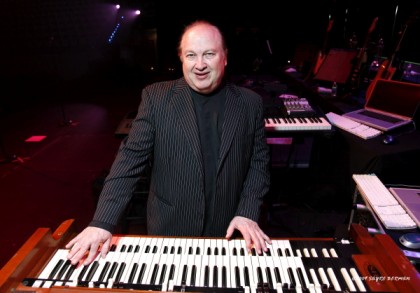 |
| Robby Robinson |
Robby Robinson has also worked up some updated arrangements and endings for some of The Four Seasons hit songs.
In 2005 the Broadway Musical Jersey Boys opened. This was based on the life of The Four Seasons from a book written by Marshall Brickman and Rick Elise. Music is attributed to Bob Guadio and lyrics to Bob Crewe. It was Guadio who hired Brickman and Elise to put together a discography musical. Brickman suggested creating the show based on the band’s history of going from rags to riches.
Brickman interviewed each of the original band members to get their take on the band’s story. But it was DeVito who actually said, “Don't listen to those guys. I'll tell you what really happened.” This became the shows first line.
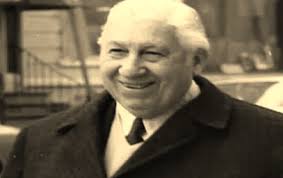 |
| Gyp DeCarlo |
The 2007-2008 year of the Broadway production coincided with the writer’s strike. The Writers Guild of America, both East and West which is comprised of 12,000 writers not to mention labor unions went on strike. The effect on Broadway was staggering.
Only 8 shows remained available to the public, due to the sympathy strike by stage hands union.
To keep interest up in the show, Frankie Valli began singing with the actors portraying the Jersey Boys. Not only is the show still going strong on Broadway and in many cities, but a movie has been adapted from the stage play.
Valli must have like the concept of having the “Jersey Boys” singing harmony behind him because since 2012 he has appeared with this format in his concerts. Perhaps it is easier and more economical to hire four singers than it is to hire guitarists, bassists, keyboard players and drummers that double as singers.
Frankie is 80 years old and is still doing about four concerts a month and sounding as great as ever. Check your local paper, because he may be coming to a city near you.





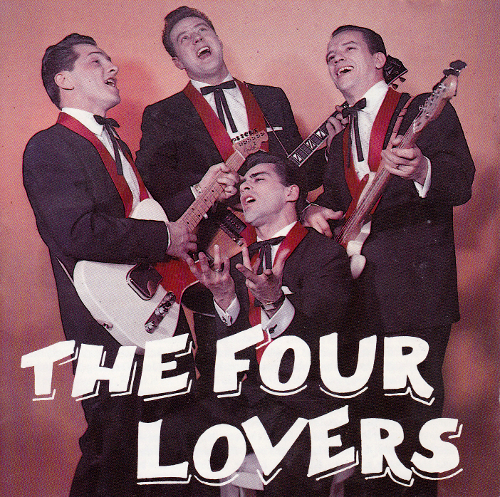
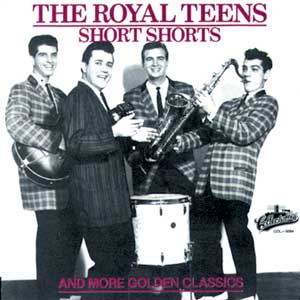





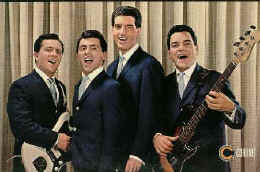






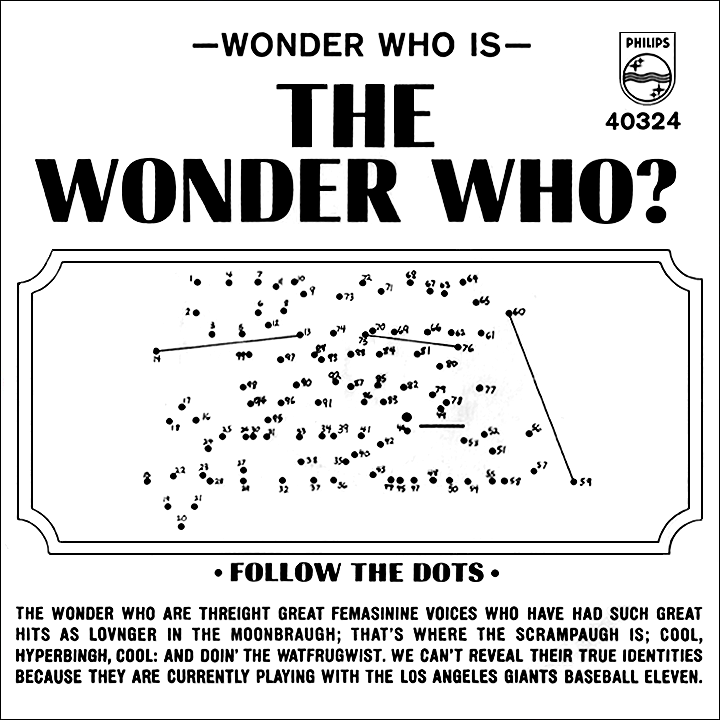



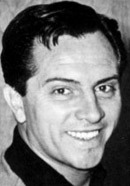










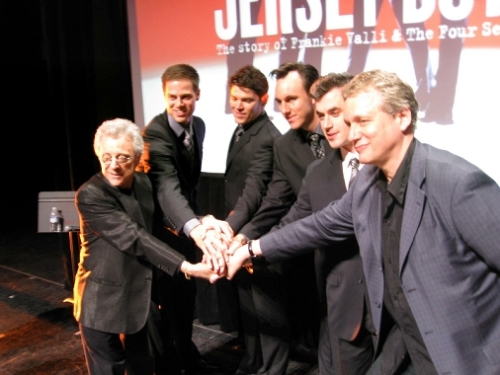


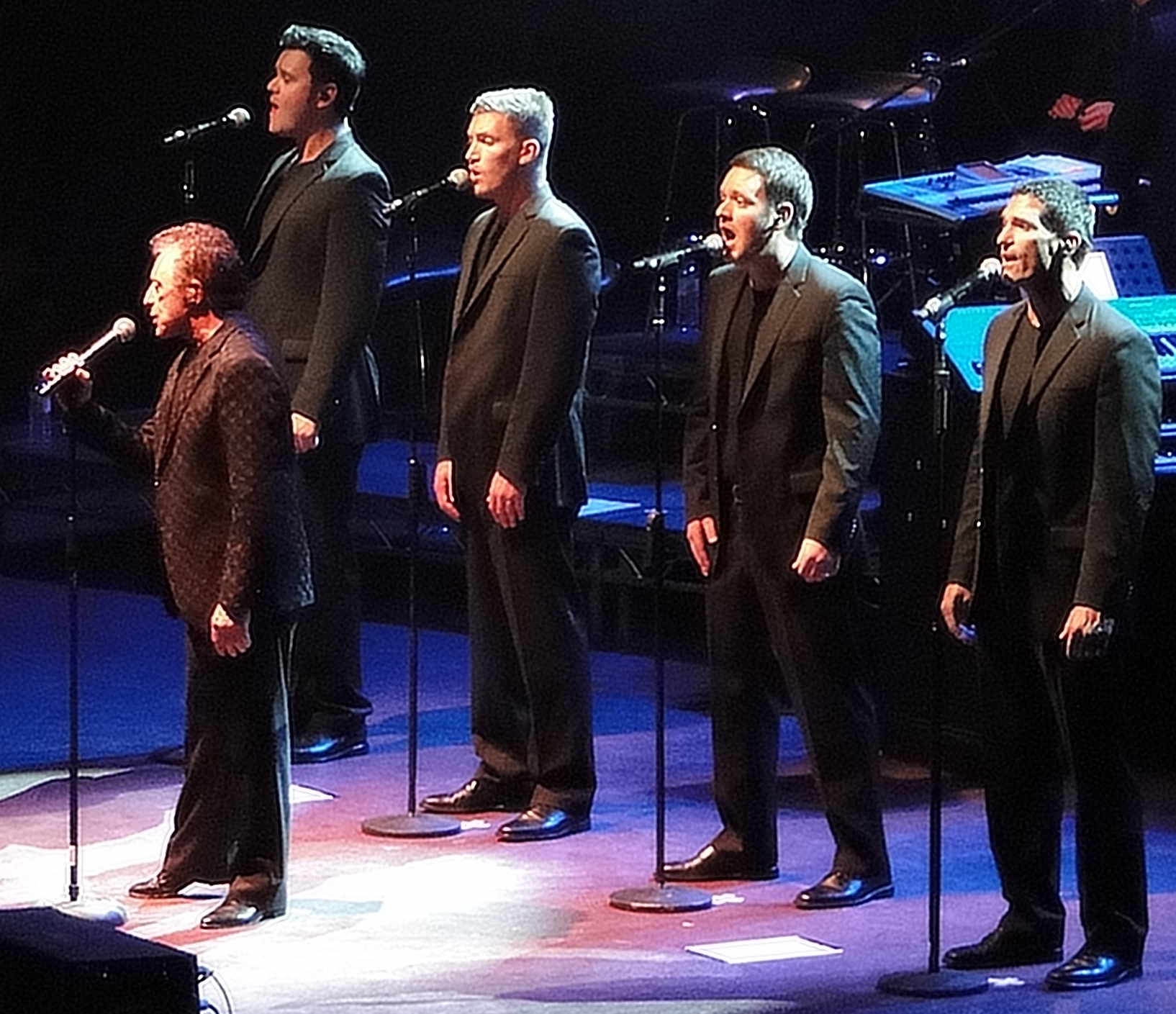

4 comments:
nike shox for men
golden goose
kawhi leonard shoes
yeezy supply
off white nike
longchamp handbags
jordan shoes
canada goose jacket
off white jordan 1
off white clothing
moncler
yeezy 350
golden goose slide
supreme clothing
air jordan
hermes handbags
kyrie irving shoes
off white
giannis shoes
nike kyrie 5
high quality replica bags c00 l5y66g7t58 replica ysl y96 m5u42k2i55 louis vuitton replica c90 b6d40p4p21
It's Bob Gaudio and not guadio .
Post a Comment